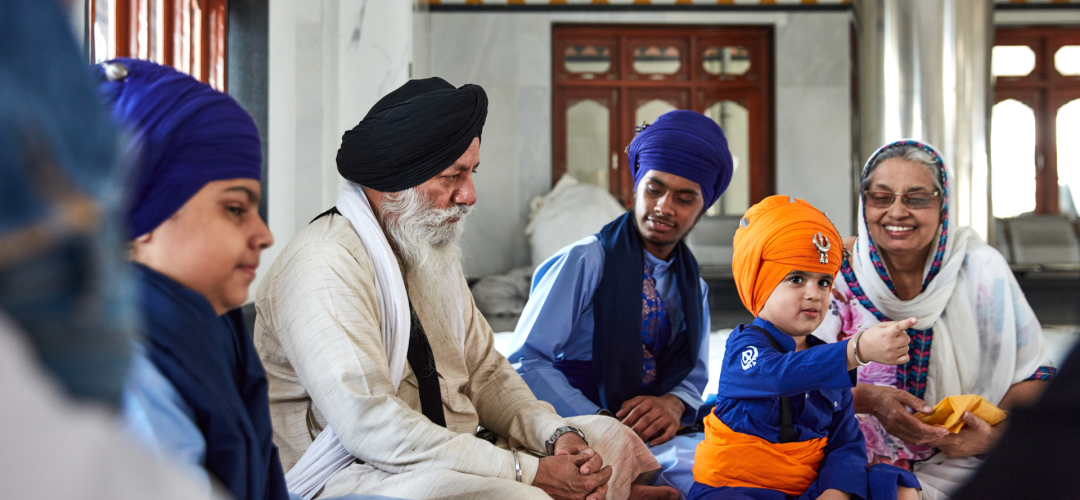


The identity of Sikhism is deeply rooted in its spiritual and ethical values, symbolized through the Five Ks, which are the five physical articles of faith that practicing Sikhs must wear at all times. These include Kesh (uncut hair), representing the acceptance of God’s will and the importance of living naturally as created. Kara (a steel bracelet) serves as a constant reminder to perform righteous deeds and symbolizes the unbreakable bond between the individual and the Divine. Kanga (a wooden comb) reflects the importance of cleanliness and order, not just physically but also spiritually. Kachera (cotton undergarments) signifies modesty, self-discipline, and a commitment to high moral standards. Finally, Kirpan (a ceremonial sword) stands for the responsibility of defending truth, justice, and protecting the weak.
Sikhism’s identity goes beyond these symbols. It is defined by a commitment to three main principles: Naam Japna (meditating on God’s name), Kirat Karni (earning an honest livelihood), and Vand Chakna (sharing with others). These principles encourage a life of devotion, hard work, and selflessness. Sikhs are taught to avoid selfishness and greed, focusing instead on helping others, fostering unity, and serving the greater good.
Central to the Sikh identity is the practice of Seva (selfless service), which promotes humility and community welfare. Sikhs engage in charitable acts, with the Langar, or community kitchen, being one of the most significant aspects of their service. Langar ensures that free meals are available to anyone, regardless of their background or status, highlighting the Sikh belief in equality and inclusiveness.
Sikhism also rejects superstitions and ritualistic practices, focusing on a direct connection with God. Sikhs believe in equality for all people, regardless of caste, creed, or gender, and strive to live a life dedicated to justice, compassion, and righteousness. Through these values, Sikhism offers a powerful, distinct identity based on faith, service, and community.
